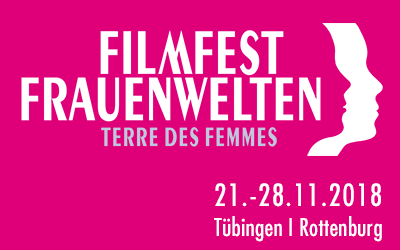Festivalimpressions 2018 - Tuesday, 27.11.
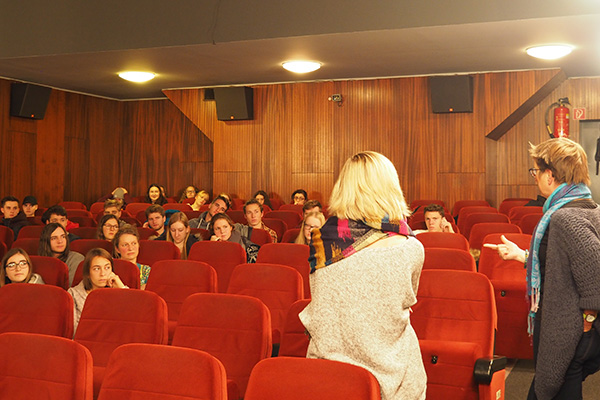
On the occasion of the 100-year jubilee of women suffrage in Germany, the film
festival organized a screening for schools of the film “The Devine Order” at
the Kino Museum.
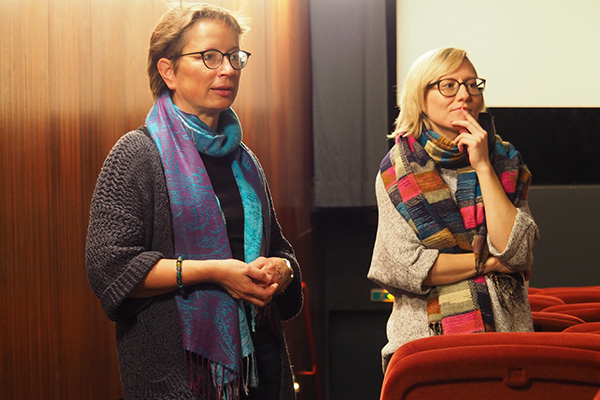
After the film, which shows the fight for women’s suffrage in Switzerland,
Beate Dörr who is a specialist in the area of women and politics at
the Regional Center for Political Education, talked about the historical
developments in Germany.
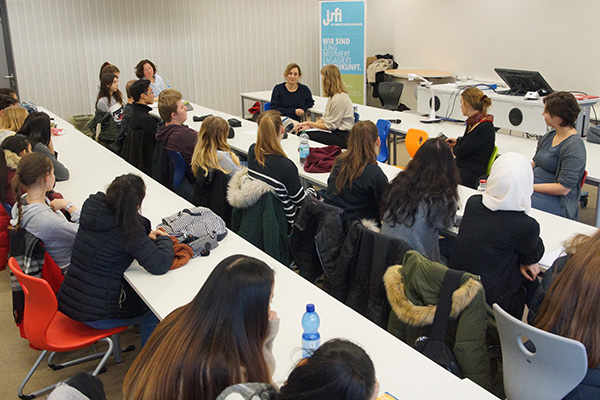
Together with director Dorothe Dörholt we showed the film “Bloß keine
Tochter!“ at the Wilhelm-Schickard-School.
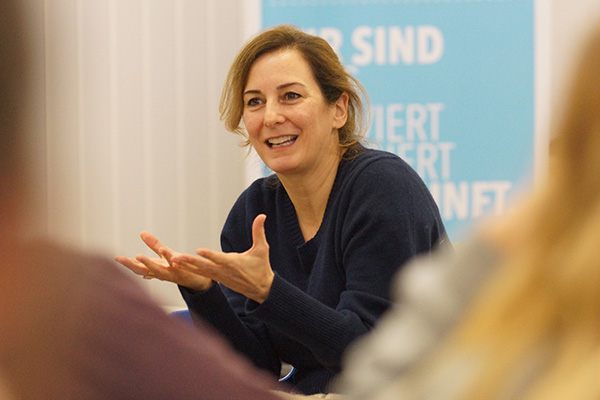
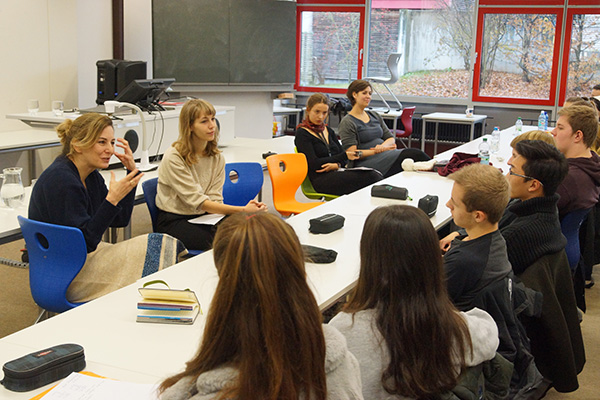
The attendees recapitulate how since the 1950’s, UN birth control programs
together with culturally anchored preference for sons in India, South Korea
and China lead to a shortage of 200 million women in Asia.
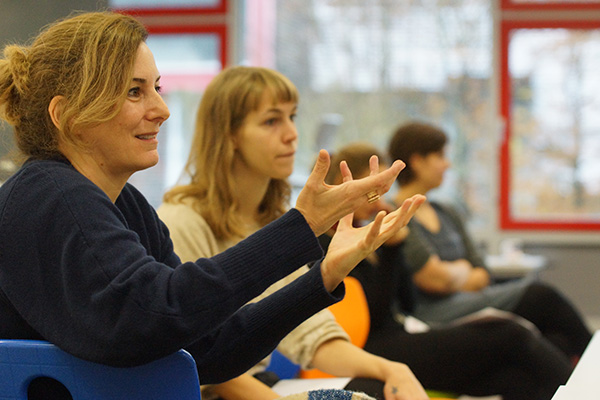
Dorothe Dörholt reports that until this day, the UN strategy consists
in proclaiming contraception, abortion and sterilization in developing countries.
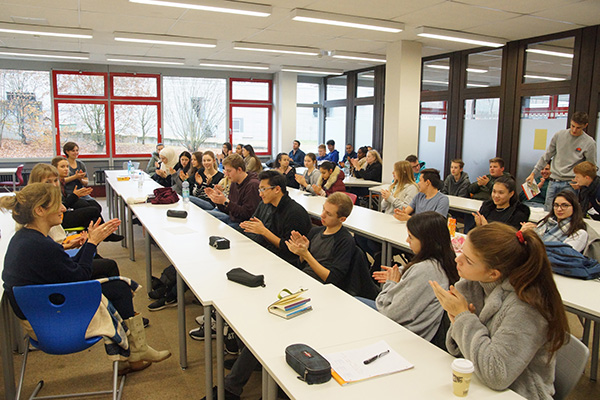
The pupils develop alternative ideas on how developmental aid can counteract
poverty: Instead of massively violating a woman’s right to self-determination,
investments in the education of women should be made.
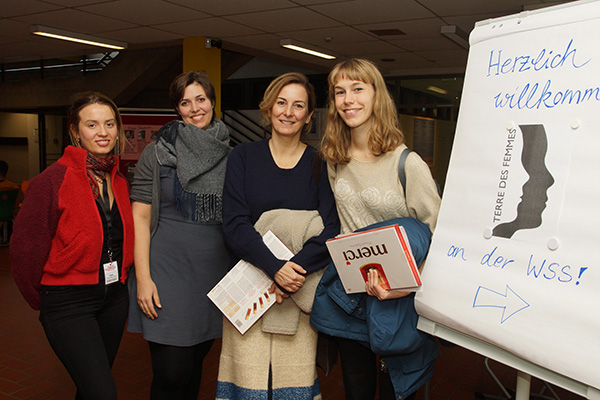
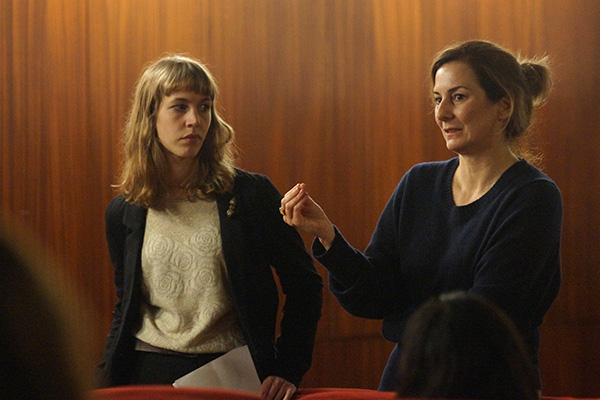
After the screening of „Bloß keine Tochter!“ Dorothe
Dörholt
speaks with the audience at Kino Museum.
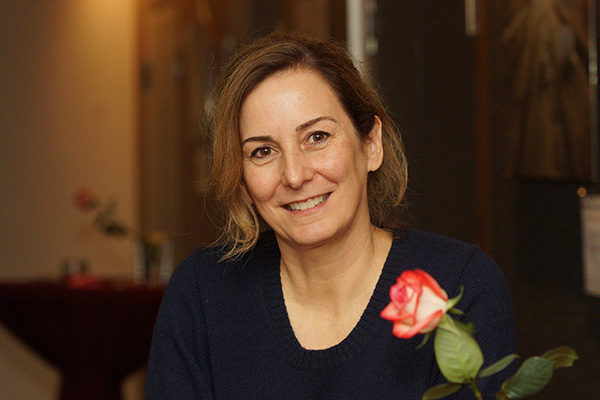
Dorothe Dörholt
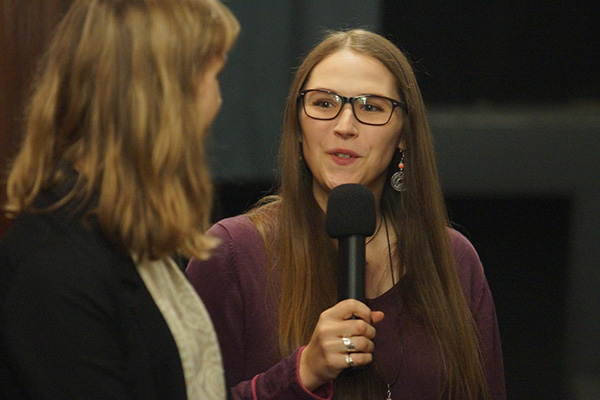
Together with Tübingen’s Amnesty International group the film
festival showed Sedika Mojadidi’s documentary “Facing the Dragon”,
which shows the engagement of two women for human rights and women’s
rights in Afghanistan. Before the screening Nicola Hofmann presents the work
of Amnesty International.
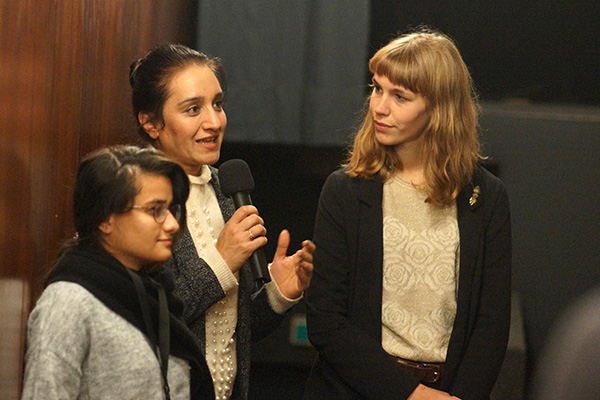
Afghan journalist Shakila Ebrahimkhil, one of the film’s protagonists,
and her daughter visited from Darmstadt, where they since live as refugees.
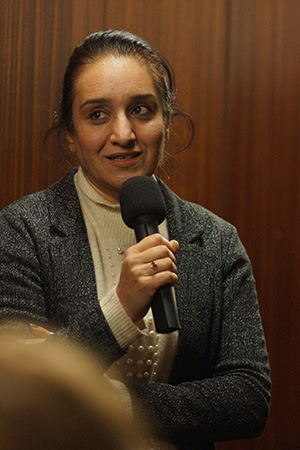
Shakila Ebrahimkhil impresses the audience with her personal history: During
the reign of the Taliban she was hardly ever allowed to leave her house,
later she was one of the first women to study journalism in Kabul after
the fall of the Taliban and helped to build up the news channel Tolo News.
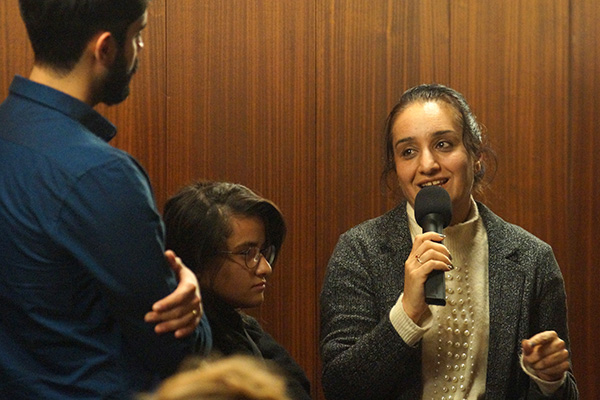
During the conversation she explains the dangerous situation of journalists
in Afghanistan. With her brave reports, Shakila Ebrahimkhil set a symbol
not to be intimidated by death threats in her fight for human rights.
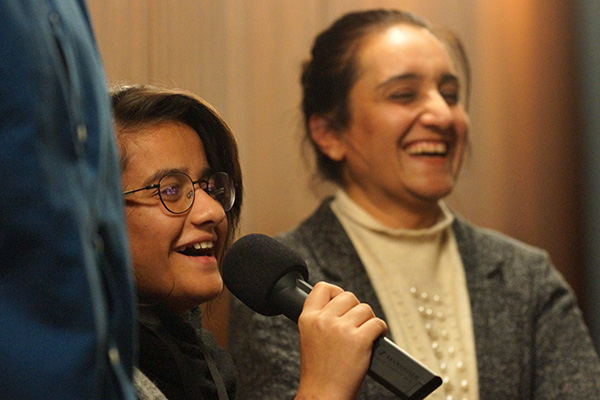
Shaqayeq Sahar Ebrahimkhil contrasted which rights and freedoms she now has
as a refugee in Germany as opposed to Afghanistan.
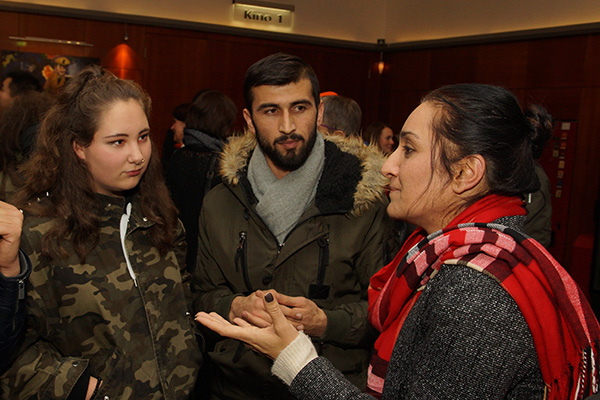
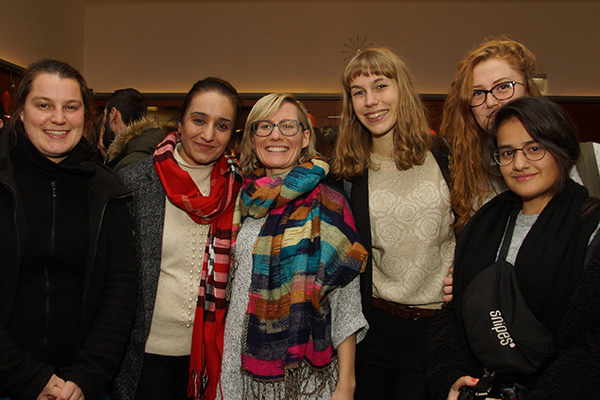
The festival team together with Shakila Ebrahimkhil and her daughter Shaqayeq
Sahar.
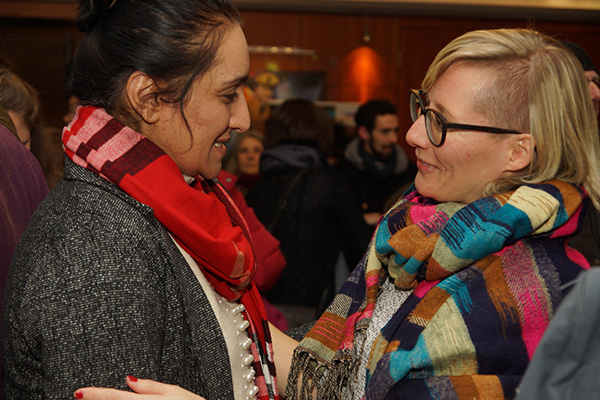
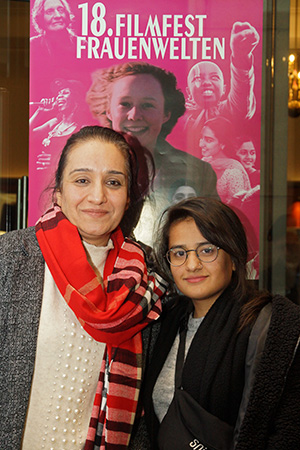
Shakila Ebrahimkhil and daughter Shaqayeq Sahar
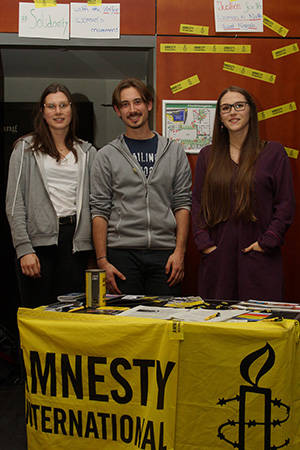
The Tübingen’s Amnesty International group provided information
about ongoing projects at the information stand.


